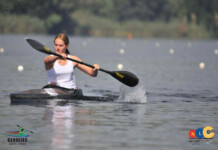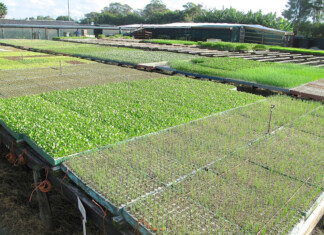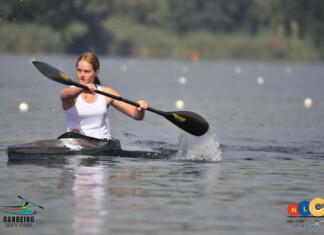The waddling little black and white bird that cannot fly but whizzes through water with impressive speed and agility and draws thousands of tourists to the Cape will be extinct by 2035 if steps are not taken to save it.
Thankfully, the Southern African Foundation for the Conservation of Coastal Birds (Sanccob), BirdLife SA and Blue Marine Foundation are determined to save the African penguin.
Not only has Sanccob and BirdLife SA initiated litigation against the government in a bid to enforce protection for the bird, but the nonprofit organisations have also launched a petition and made a film to raise public awareness about the penguins’ plight.

Weekender asked Sanccob’s head of conservation, Nicky Stander:
Q: What is the greatest threat to the African penguin?
A: The African penguin is found nowhere else in the world except for SA and Namibia. It faces a number of severe threats. In SA, the primary issue is competition with the purse seine [a large wall of netting deployed around an entire area or school of fish] fishing industry, which has led to severe declines in sardines and anchovy populations — both essential to the penguins’ diet. As a result, the shortage has resulted in starvation and difficulties in breeding. In Namibia, the lack of adequate protective measures and scarce fish stocks are major concerns. Other significant problems include habitat destruction, pollution, climate-change effects on the ocean, increased marine vessel traffic and ship-to-ship refuelling at sea, as well as oil spills. To ensure the survival of this species in the wild, these challenges must be addressed and we are keen to raise awareness of the plight of the African penguin on a global scale, which is the focus of our campaign and petition.
Q: How many colonies exist and where are they located?
A: Once numbering in the millions, the African penguin population in SA and Namibia has decreased to just 2% of its historic size. There are now fewer than 10,000 breeding pairs in the remaining seven key penguin colonies along the southern African coastline. One of the most iconic and frequented colonies is located at Boulders Beach just outside Simon’s Town. The penguin colony is the third most popular tourist attraction for tourists visiting Cape Town. Another significant colony is situated around St Croix Island in Algoa Bay. Unfortunately, this colony has suffered greatly from increased maritime traffic and noise pollution. In 2014, St Croix Island was home to about 8,600 breeding pairs, but by 2023, that number had plummeted to fewer than 800 breeding pairs. To help penguins “follow the fish”, BirdLife SA, with assistance from Sanccob, and supported by the Pamela Isdell Foundation, are experimenting with establishing a new breeding colony in a safe area with better fish availability. The experiment is showing early signs of success. Several penguins have been recorded at the site and breeding took place in 2022, with one pair successfully nesting. In 2023, four pairs bred successfully, marking a positive step for the species.
Q: How have numbers been depleted over the years?
A: The African penguin population has declined by an alarming 97% over the past century. Every year, the species faces an additional decline of about 8%. Without immediate intervention on the part of the government to secure core penguin foraging grounds and support other conservation interventions, African penguins could face extinction by 2035.
Q: What steps are being taken to protect African penguins?
A: Sanccob, in collaboration with BirdLife SA and the Blue Marine Foundation, has launched a campaign and petition to rally global support for the protection of the African penguin. Additionally, Sanccob and BirdLife SA have initiated landmark litigation against the SA government, the minister of forestry, fisheries and the environment, and his department. This legal action aims to enforce stronger protections for the species, replace existing commercial fishery no-take zones with more effective closures that align better with the penguins’ critical foraging areas, and mitigate competition with the purse seine fishing industry.
Q: Can commercial fishing be managed to protect resources?
A: Our primary concern is about the locations where fishing occurs, rather than asserting that overfishing is the issue. The commercial purse seine fishing technique is particularly detrimental, as it deprives African penguins of their primary food sources, resulting in starvation and reduced breeding success. Currently, the existing no-take zones cover less than 50% of the penguins’ core foraging areas, which is inadequate for their protection. Without the government’s intervention to secure the required foraging grounds for African penguins, the species’ risk of extinction remains.
Q: How do you feel about the threat of extinction?
A: The African penguin is an important indicator species, which provides us with important information about the health of our marine ecosystem. The fact that the species is in rapid decline informs us that the ocean is in poor health.
Q: African penguins are such charming, lovable birds. What can the public do to help?
A: Our campaign invites everyone to get involved in protecting the African penguin. A simple yet impactful way to contribute is by signing and sharing our OnlyOne (https://url.za.m.mimecastprotect.com/s/TFU5CDRZzLsrzkxyTWf0FjVH-Z?domain=only.one) petition, which calls for expanded no-take zones and enhanced protections for these penguins. We encourage people worldwide to participate and help advocate for the necessary changes that will safeguard these endangered birds.
Q: Please tell us about the film and what you aim to achieve with it? Also, where will it be broadcast?
A: The campaign film concept was developed due to a significant lack of public awareness. The Blue Marine Foundation helped us to capture the key threats facing African penguins — being the lack of available prey due to competition with commercial fishing and increased vessel traffic and maritime expansion. The film highlights that time is running out and that the government has a small window of opportunity to change the trajectory of the penguins’ decline. The film will be used on social media platforms and at conferences to create increased awareness.
Q: African penguins are a major tourist attraction in Cape Town. Is there a concern this will be affected as the numbers of penguins plummet?
A: Absolutely. The decline of penguin populations would have a significant impact on tourism and the local economy. Boulders Beach alone contributes about R311m annually, drawing more than 60,000 visitors each year to Simon’s Town, specifically to see the penguins. There are many indirect benefits as well, for accommodation establishments, transport companies, tour guides, restaurants, and so forth. If urgent action is not taken, the consequences will be severe, not only for the penguins, but also for the city’s tourism economy. Therefore, the fate of the African penguin should be of particular concern for Cape Town residents, but also for all people that value the intrinsic rights of these birds to exist and thrive in the wild.
• Sign the OnlyOne petition HERE (https://url.za.m.mimecastprotect.com/s/RrptCElXAMFo2NqYIwhJF757AA?domain=csdjf04.na1.hs-sales-engage.com)
Weekender







